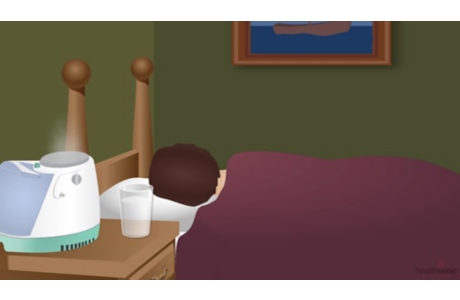Condition Basics
What is influenza (flu)?
Influenza (flu) is an infection from a virus. It can cause a fever, body aches, a headache, and a cough. It is contagious and usually lasts about a week or two. Flu symptoms are usually worse than a cold and last longer. The flu usually doesn't cause vomiting or diarrhea in adults.
Most flu outbreaks happen in late fall and winter. Because symptoms may not start for a couple of days, you may pass the flu to someone before you know you have it.
What causes it?
The flu is usually caused by the influenza viruses types A and B. There are different subtypes, or strains, of the flu virus every year.
What are the symptoms?
Flu symptoms may include fever, body aches, a headache, a dry cough, and a sore or dry throat. You'll probably feel tired and less hungry than usual. The symptoms are usually worse for the first few days. But it can take up to a few weeks to get completely better.
How is it diagnosed?
Your doctor will ask you about your symptoms and will examine you. This usually gives the doctor enough information to find out if you have the flu. Sometimes the doctor will do a test to check for the flu.
How is the flu treated?
Most people can treat flu symptoms at home with rest, medicines, or other treatment. Your doctor may give you medicine that can make the symptoms milder. But some people need treatment in the hospital. They may have severe symptoms or get pneumonia. Or the flu infection may make an existing health problem worse.
How can you prevent it?
You can help prevent the flu by getting the flu vaccine every year. It's best to get the vaccine as soon as it's available. The U.S. Centers for Disease Control and Prevention recommends that everyone 6 months old and older get a flu vaccine.





